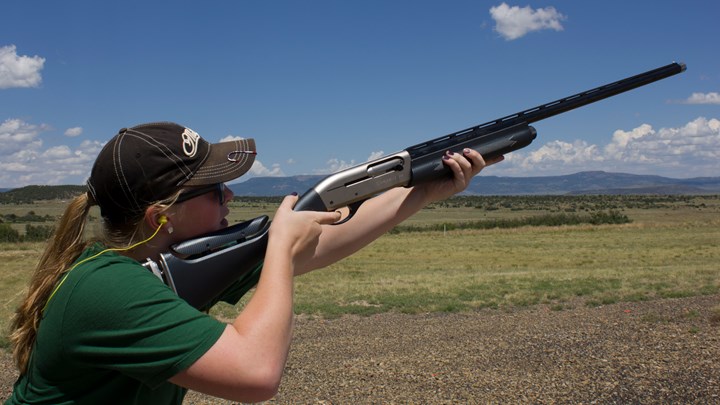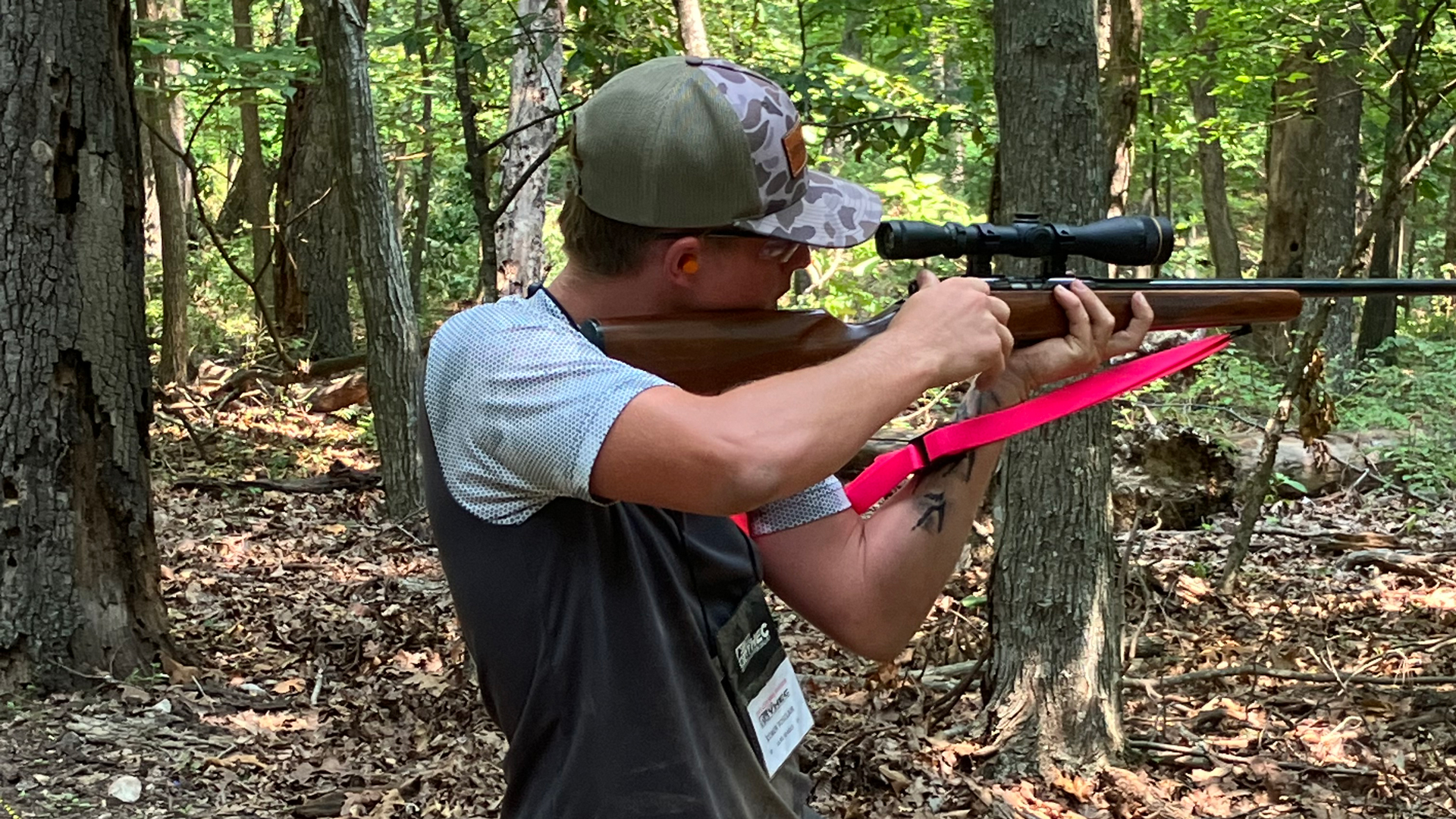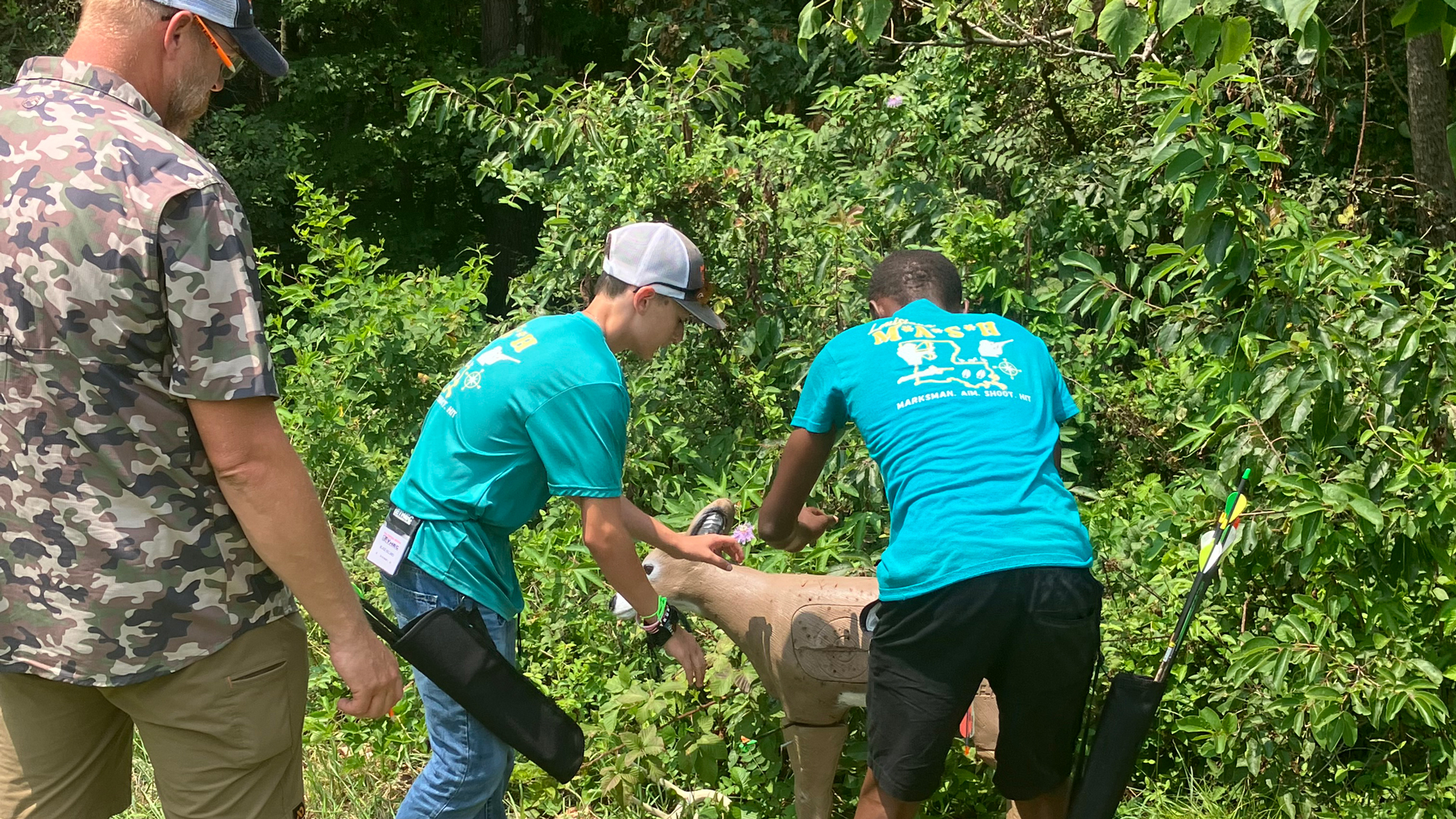
by Bethany Beathard - Tuesday, December 24, 2024

Nurturing the next generation of hunters is more essential than ever in today's world, where outdoor traditions face increasing challenges. Youth-focused hunting programs offer a way to secure the future of hunting and wildlife conservation. These programs help instill in young hunters the values of safety, skill and stewardship, building a foundation that will carry them through a lifetime of ethical hunting and outdoor activities.
The premier program dedicated to youth hunting education in America is the NRA Youth Hunter Education Challenge (YHEC). Launched in 1985, the program provides a unique, hands-on experience where young hunters up to age 18 can develop their marksmanship, hunter safety and outdoor skills. Participants compete in individual and team competitions in an atmosphere of camaraderie where the key focus is on hunter safety and ethics.

Through simulated hunting scenarios, live-fire exercises and a range of educational activities, YHEC goes beyond basic hunter education to offer comprehensive training and competition across eight skill areas including: .22 Rifle, Shotgun, Muzzleloader, Archery, Wildlife Identification, Orienteering, Hunter Safety Trail and the Hunter Responsibility Exam. From shooting with rifles, bows and muzzleloaders at life-sized targets to learning wildlife identification and map orienteering, participants gain expertise in all hunting methods and all types of wild game. Participation is offered in two age categories: Junior, ages 14 and under; and Senior, up to age 18.

“Think of YHEC as advanced hunter education,” said state and regional YHEC coordinator and longtime program volunteer Gary Jobe. “The program teaches much more with the development of teamwork, life skills, leadership and more. We have had kids come through the program and got to watch them grow into successful adults with careers.”
The Significance of YHEC
With more than 1.3 million participants since the program’s inception, the NRA Youth Hunter Education Challenge fosters a lifelong appreciation for nature and the outdoors, instilling values that extend beyond hunting alone.
“The result of these programs often influences the career path of these kids,” explains Jobe, who has a son who grew up learning to hunt and is now a gunmaker and gun store owner in Houston. “A lot of the skills they [the participants] learn in the program translate into real life. Honestly, there are many forgotten skills among the youth today—skills like orienteering—that YHEC is making sure continue.”
Jobe shared several testimonies from participants who took part in the NRA YHEC and then went on to choose career paths in the outdoor industry. Stating that some are now hunting guides and game wardens, he said he even worked with a young lady who went on to pursue a career in taxidermy. The influence of YHEC and the skills gained through participation in it go beyond the competition as the training translates into lifelong lifestyle choices.
Beyond teaching skills, YHEC emphasizes responsibility, hunter ethics and safety—essential foundations for any hunter or gun owner. Young participants learn how to handle firearms and bows safely and proficiently. The results speak for themselves as YHEC participants go on to purchase hunting licenses in their home state, illustrating the program's effectiveness in fostering lifelong engagement in the hunting community.

In an age when hunting traditions face increased challenges, the YHEC program is vital for preserving these traditions and supporting conservation efforts. Just as important, it acts as an investment in hunting’s future, bridging the gap between past traditions and the conservation needs of tomorrow.
The Backbone of YHEC: Dedicated Volunteers
At the heart of the YHEC’s success is the commitment and dedication of its volunteers, who serve as the program’s driving force. These passionate individuals run the program's events, provide invaluable guidance and create a supportive community that encourages both skill and character. Through their efforts, YHEC volunteers ensure that the program’s impact extends far beyond each event, shaping a new generation of responsible, skilled hunters and future gun owners who are ready to carry forward the legacy of hunting.
Jobe, for example, discovered YHEC through a newspaper article and quickly became immersed in the program. After transferring for work from Texas to Arkansas, Jobe volunteered to step up and serve as the local YHEC director when the area had no leadership. In its early years, he said the program drew around 400 youth participants annually, and thanks to volunteers like Jobe, it has continued to thrive. He highlights how kids love the .22 rifle competition for its ease of mastery and the popularity of wildlife identification events, as they are engaging and interactive. Recognizing the importance of teaching navigation, Jobe and his team emphasize the need to understand the basics of orienteering, including through introducing electronic GPS navigation, as participants learn about and adapt to modern advancements.
Barry Estep, Pennsylvania's state YHEC coordinator, has been involved with the program for 39 years. Starting as a volunteer for the shotgun competition at his local rod and gun club, Estep's passion for the program has only grown. He emphasizes the camaraderie among volunteers meeting at large state and national program events. These events foster the ability for like-minded individuals to connect over their shared mission to mentor the next generation of hunters and conservationists.
“This program has a lasting impact, shaping the youth into responsible hunters and outdoors men and women,” noted Estep. “I truly wish more people understood how positively YHEC influences young participants by encouraging them to embrace safety, ethics and respect for wildlife.” Estep expressed his wish that more people knew about the NRA YHEC program and the incredible opportunities it has to offer. He is also a strong advocate for the NRA, praising its support of the program and its role in promoting and communicating about hunting for future generations.
The Impact of Volunteers on Youth Participants
YHEC volunteers do more than just facilitate competitions: They create meaningful mentorship relationships, provide positive role models and elevate the educational experience. Through their guidance, young participants learn critical skills, starting with underscoring firearm safety. Volunteers like Gary Jobe, Barry Estep and many more emphasize that these lessons go beyond technical knowledge, instilling values such as responsibility, teamwork and ethical behavior. Without the dedication of volunteers, it is clear the YHEC would not have the profound impact it does today. Their unwavering commitment ensures that each young participant leaves the program not only with new skills but also with a deeper appreciation for the outdoors and the role hunters play in conservation.
Challenges Faced by YHEC Volunteers
While YHEC continues to make a significant impact, volunteers have highlighted several challenges that the program faces. One of the primary obstacles is expanding its reach to get the word out to even more potential participants. Despite the program’s success, many families and young hunters are unaware of the NRA program, making promotion and outreach crucial for its growth. Volunteers emphasize the need for the strongest marketing efforts possible within their communities and through their partnerships with program sponsors to raise program awareness and attract new participants.
Another challenge lies in the fact the YHEC program has to compete with the increasingly demanding schedules of high school students, who are in the program’s Senior category. Involvement in high school sports and other extracurricular activities has grown significantly, leaving less time for programs like YHEC. Having to compete for the same pool of kids makes it more difficult to engage new participants and retain those already involved. Volunteers are tasked with finding innovative ways to balance these demands while highlighting the unique benefits YHEC offers compared to other activities.
The Future of Hunting: Investing in Youth Today
Investing in today’s youth is essential for the future of hunting and conservation. The YHEC program offers numerous long-term benefits, providing young people with opportunities to develop lifelong skills, build confidence and deepen their connection to nature and wildlife. The program not only promotes physical and mental well-being but also fosters a sense of responsibility and understanding of wildlife.
Additional Resources
To support youth engagement in hunting and conservation, several resources are available for parents, mentors and volunteers. Information about upcoming YHEC events provides opportunities for youth to participate in skill-building competitions and educational workshops. Those interested in supporting these programs can find contact details for volunteer opportunities, allowing experienced hunters and conservationists to give back by mentoring the next generation. For more information about the NRA Youth Hunter Education Challenge, contact NRA Hunting at 844-221-8861 or email [email protected].
E-mail your comments/questions about this site to:
[email protected]
Proudly supported by The NRA Foundation and Friends of NRA fundraising.
